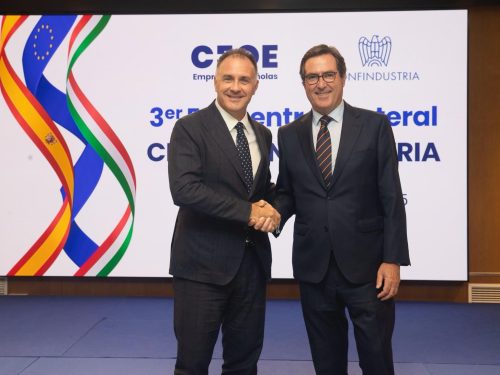News
Share on
We want postpone the presentation of the proposal, to make could undermine a system of excellence'. Thus Stefan Pan, Confindustria delegate for Europe in an interview with Il Sole 24 Ore in which he explained the line along which companies are moving on thehe proposal for an EU regulation on the re-use of packaging. For Pan "ne are realising the impact it would have on many supply chains, with serious consequences for the food, cosmetics, pharmaceutical, chemical, medical device, home care, catering and logistics industries. Not counting of course the recycling industry, for which we are European champions'.
Regarding the draft circulated in Brussels in recent days, pending the presentation by the European Commission scheduled for 30 November, the Confindustria delegate for Europe stated that 'it is necessary to postpone it so that we have time to make people understand the devastating impact on several Italian and European supply chains and on a system of excellence such as the recycling industry'.
Confindustria is working both at a political level, with the new Italian government, and with the other industrial associations of EU countries, to explain the consequences this regulation would have, should it come into force. Precisely for this reason 'llast week with President Carlo Bonomi in Brussels we had a very constructive discussion with Italian MEPs, Commission Vice-President Maros` Sefcovie and Commissioner Paolo Gentiloni'., said Stefan Pan.
Among the companies' demands the Delegate for Europe has reclaimed the need 'to do a reality check and discuss without ideology, taking into account the ever-changing technology. Think, for example, of the large investments in recycling by Conai, the Italian national consortium for packaging"he noted, adding that the approach of the regulation è "very ideological as it pushes reuse more than recycling. Which can also work - he explained - but it must not be used to disrupt the existing supply chain. Ideology kills innovation because it does not allow us to work with a fundamental criterion: that of openness, of technological neutrality, which guarantees precisely innovation. Sustainability,' he clarified Pan - has three legs: environmental, social, economic. The latter has not been deepened as it should have been. We are trying to combine ambition and realism, explaining the true implications of this proposal for a regulation, which at Italian level would affect more than 7,000 companies and 6 million employees, not counting trade and Horeca'.
Regarding ongoing initiatives Pan has said: "We are preparing a proposal to share with the German and French Confindustria. We were the first to raise the alarm, to defend the Italian excellence that sends more than 1170% of the packaging placed on the market for recycling, and has reached the European targets nine years in advance. The new regulation affects us most of all because we are top of the class. But it also has repercussions in Germany, Austria, France, Spain and Poland: we are in dialogue with the industry associations in these countries because it is important to move together. We also want to involve the trade unions, and obviously the governments, because it is an issue that affects everyone. We will try to get our demands across to all EU institutions: from the European Council to the Europarliament and the Commission of course'.
According to Pan "lhe management of packaging and recycling is a point in which Europe can be strong in a reasoned manner and with a technical know-how that brings together the best available technologies, an area in which Italy excels given that in 2020 it gave a second life to 37 thousand tonnes of steel, 47 thousand of aluminium, 4 million of paper, almost 2 million of wood, 1 million of plastic, 2 million of glass: we are talking about 10 million tonnes of material, demonstrating how much we have activated and moved forward'.
On the Pnrr the Delegate to Europe stated that the Italian plan is 'specifically focused on recycling. In fact, we have planned more than EUR 2 billion to strengthen the circular economy. Instead, The EU Commission first approved this approach and then plans to unhinge everything by means of a regulation that is detrimental to the industry? It must be clear that if this circular economy model were to fall apart, it would be like undoing all the investments made so far,' Pan concluded.



















